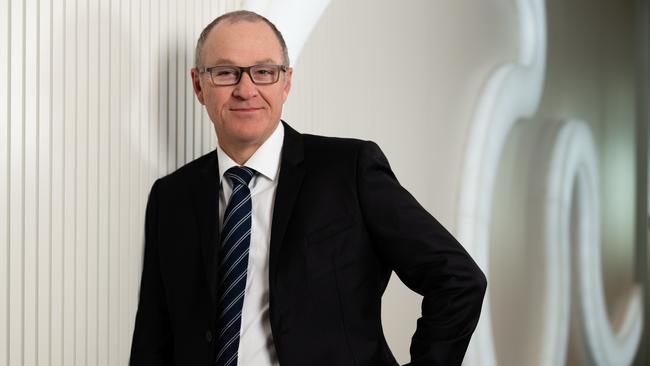PwC to splurge $US12bn globally to rise to ESG challenges
The global accounting firm will spend $US12bn over the next five years as it prepares to help clients grapple with ground-shifting challenges like climate change.

PwC Australia is preparing to invest its share of a $US12bn ($15.6bn), five-year splurge by the global accounting firm on recruitment, training and technology, as it helps clients to navigate ground-shifting challenges like climate change, technological disruption and Covid-19.
The plan, announced on Wednesday, will add 100,000 people to a worldwide workforce of 284,000 across 155 offices.
PwC Australia chief executive Tom Seymour said the focus on growth in the global strategy aligned with the local firm’s approach.
“As part of PwC Australia’s digital transformation strategy, we are making a significant investment in growth to meet the rising demand for skills in cyber, cloud and assurance services, plus increasing our capacity onshore to address data sovereignty and security concerns,” Mr Seymour said.
Dubbed The New Equation, the strategy responded to an environment where establishing and maintaining trust was a key driver of success, with digital transformation accepted as an integral part of achieving business objectives.
The recently announced skilled service hub in Adelaide, which aims to build the workforce of the future, was part of the plan, focusing on roles in cybersecurity, the cloud and financial audit.
“The New Equation brings into focus for the entire PwC network two critical business needs – building trust and delivering sustained outcomes,” Mr Seymour told The Australian.
“Trust is emerging as a major business need, and conversely a lack of trust is a critical business impediment.
“The Edelman trust barometer has shown a clear decline in trust in institutions in recent years – trust is critical to the functioning of markets and society, and it is core to our strategy.”
The blueprint is a significant step up from the firm’s $US7.4bn investment since 2016, which led to a 20 per cent expansion in global revenue to $US43bn.
It aims to benefit from the growing emphasis on ESG (environment, social and governance) issues, as companies respond to the clamour from investors for more sustainable and less emissions-intensive business practices.
In the Asia Pacific, PwC expects to accelerate growth with the investment of $US3bn over the next five years to double the size of the business from $US6.4bn in revenue in the 2020 financial year.
PwC will establish an Asia Pacific institute to channel trust-building initiatives, as well as enhance talent and develop leadership programs.
A number of strategically important areas will also be scaled up, including ESG, digital transformation, mergers and acquisitions and value-creation capabilities, and providing assurance beyond financial statements.
PwC global chairman Bob Moritz said profound changes in the world meant that organisations had to create a virtuous circle to succeed by earning trust and delivering sustained outcomes.
“By bringing our unique combination to quality, we can help them do that,” Mr Moritz said.
“In doing so, we will help clients unlock value for shareholders, stakeholders and wider society.”
PwC’s approach to building trust was to meet the rising expectations of transparency and stakeholder engagement.
It combined expertise in audit, tax and compliance activity with an expansion of specialist capabilities including cybersecurity, data privacy, ESG and artificial intelligence.
The firm said reporting and compliance was just one link in a chain which included culture, the mindset of executives, stringent controls, technologies that were fit-for-purpose, and appropriate governance.
Delivering sustainable outcomes also required an integrated approach.
ESG is one of the areas targeted for significant investment, with the firm to expand centres of excellence for specialists in key issues, such as climate risk and supply chain, as well as create a global ESG “academy”.
The academy would enable all PwC partners and staff to integrate ESG fundamentals into their work.
About 1000 partners from 60 territories had already completed a six-week program on business issues resulting from key global trends.







To join the conversation, please log in. Don't have an account? Register
Join the conversation, you are commenting as Logout